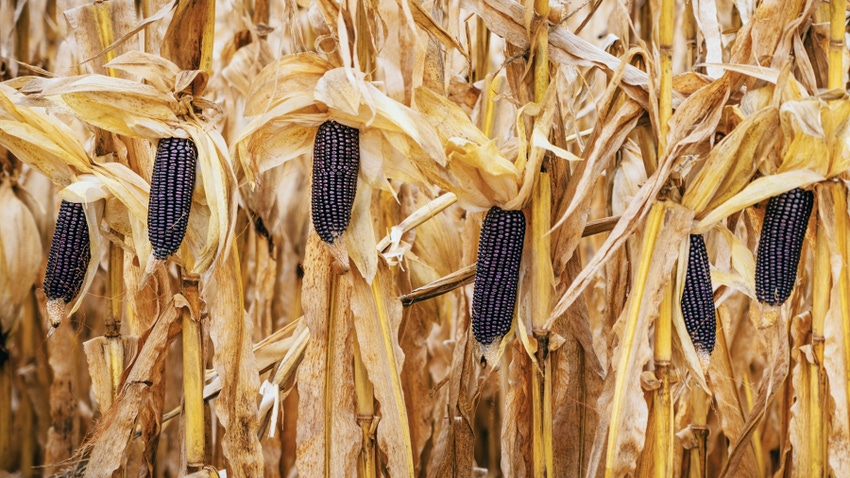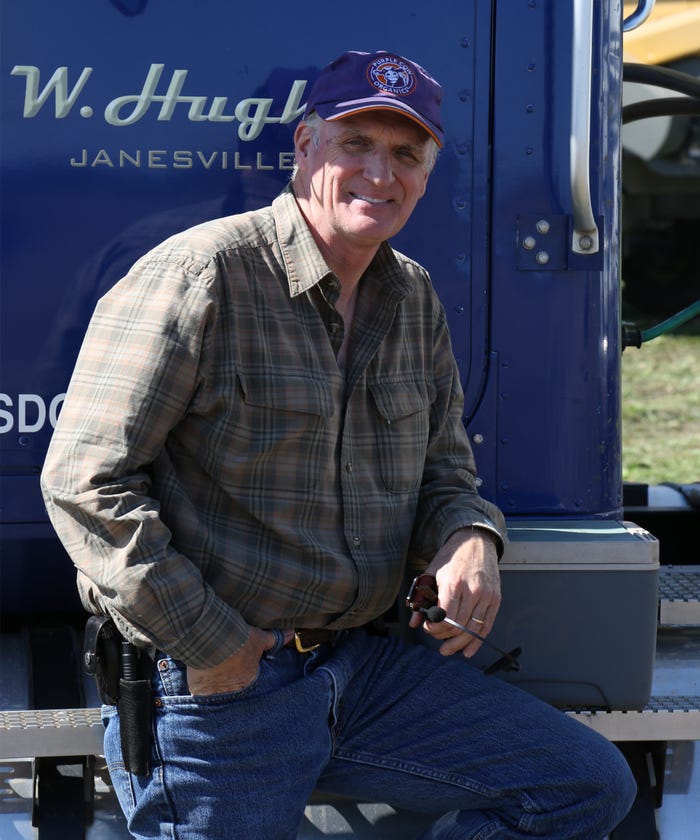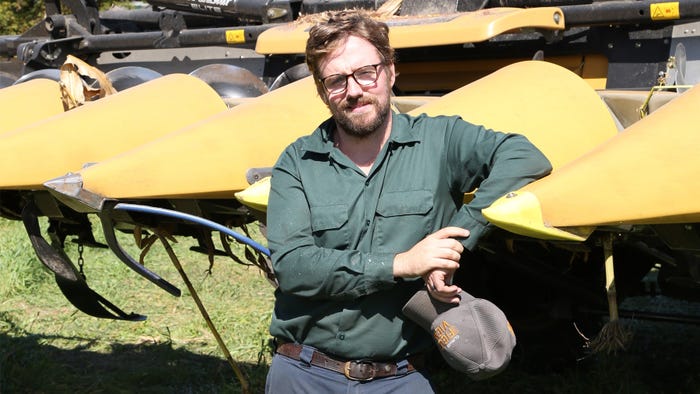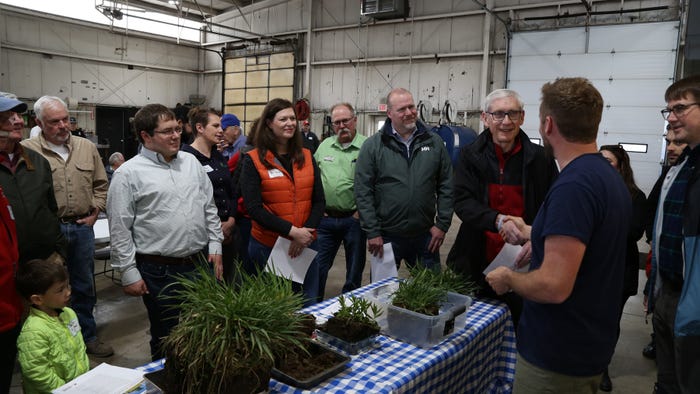July 7, 2023

Randy Hughes and his family grow a wide range of vegetables and specialty grains. Their farm is not a traditional corn and soybean farm — rather, they raise lima beans, snap beans, kernza and blue corn. The corn has grown into a business of its own. The Hughes family has it processed, packaged and sold as blue corn tortilla chips with their own label.
Randy and his family farm with soil health and conservation in mind.
“We plant a lot of cover crops,” Randy says. “We plant crops that are soil friendly.” There are grass waterways and filter strips. Irrigation is computer controlled to conserve water.
W. Hughes Farms raises no livestock, Randy quips, “but millions and millions of microorganisms. We cultivate those. We buy beneficial organisms and add them to the soil all the time.”
The Hughes family farms 5,000 owned and rented acres near Janesville, Wis. Their farm is partially certified organic and has been since 1990. With that large of a farm, soil types range from sandy to rocky to clay.
“Some pieces work well with organic; some do not,” Randy says. “We are probably over half on organic. I want to add value to my crop.”
They raise non-GMO crops, a lot of hybrid rye and the perennial wheat-type grass known as kernza.
Randy says it’s “wonderful” for the environment. “No runoff, you can graze it or raise hay on it. The crop will last three to five years. We find ways to incorporate small grains into our operation.”
He acknowledges, “They just don’t bushel well enough but are much better for the environment, and they work well with soil replenishing. We are working on ways to make them more profitable, like with the hybrid rye."

FAMILY FARMER: Randy Hughes is the fifth generation on the Hughes family farm near Janesville, Wis. The farm raises blue corn, lima beans, snap beans, non-GMO crops, hybrid rye and the perennial wheat-type grass known as kernza.
The move toward organic began more than 30 years ago on the Hughes farm. “We started to diversify away from No. 1 and 2 corn and soybeans,” Randy says. Before that, he felt he was “in competition with every other farmer in the United States.”
As an organic farmer, Randy feels the competition is less.
“You get a whole new incentive,” he says. “Organic can be more profitable, but understand there is more risk. I just felt like I was working with Mother Nature instead of trying to beat her at her own game. It just feels like it’s getting better every year. Like with the [blue] corn — we turn it into our product and process our product. It seems easier to make money in the food business if you’re not farmers.”
Randy says his specialty and organic crops seem to be the most profitable year after year.
“Usually, it’s one of the really unique crops,” he says. “It’s not the same crop every year.”
He has been a member of the Wisconsin Corn Promotion Board for more than 20 years.
175-year-old family farm
Randy believes his ancestors would be proud. He and his wife, Judy, with their son, Willie, and daughter, Julianne, represent the fifth and sixth generations of Hugheses on a land-grant farm begun in 1848 by Whilden Hughes. Since then, all succeeding generations have been led by a Whilden Hughes but with different middle names. Randy’s full name is Whilden Randall.

FAMILY TRADITION: Willie Hughes, son of Randy and Judy Hughes, is the sixth generation to farm on the family’s farm. The Hughes family has farmed near Janesville for the past 175 years.
Randy’s grandparents were college-educated. Randy has an ag degree from the University of Wyoming. He credits a great-grandmother with the foresight to help develop W. Hughes Farms. He tells the story of how her husband died, but instead of selling out, she began buying land. Drawing on that looking-ahead heritage, he says, “My job is to try to carry on that tradition and try to transfer the farm to the next generation.”
Both Hughes children are involved in the operation “and couldn’t be happier,” according to their dad. The family is just beginning to talk about how best to pass the farm on to the next generation.
Today, Randy and Willie operate the farm with six full-time employees and six or seven part-time employees, including Julianne.
Willie helped form a watershed group called Farmers on the Rock (River). All members are involved in growing crops that are soil friendly. They made a spring visit to W. Hughes Farms with Gov. Tony Evers and Wisconsin Ag Secretary Randy Romanski, both of whom praised the group’s soil and water saving efforts.

FARM VISIT: Members of a watershed group called Farmers on the Rock (River), along with Gov. Tony Evers and Wisconsin Ag Secretary Randy Romanski, visit W. Hughes Farms to learn about the farm’s conservation efforts.
The Hughes family says their mission is: “To grow and produce wholesome food in an environmentally sustainable way. We strive to have a good quality of life that exemplifies solid family and community values. We work to maintain a strong competitive advantage through diversity and specialization. We pride ourselves on being a prompt, organized, safe and well-maintained operation ready to tackle any challenge.”
Buchholz lives in Fond du Lac, Wis.
Read more about:
OrganicAbout the Author(s)
You May Also Like




